Intercom systems are considered an advanced device that helps connect multiple people within the same building or business. With the development of information technology and modern engineering, these systems now integrate many advanced features, making it easier for employees to connect and share signals with one another.
If you’re interested in learning more about internal communication systems, join NT Security in exploring this topic through the following article.
What Is an Intercom System?
An intercom system is a standalone communication system that is typically used within confined spaces of a building. It consists of electronic devices that allow users to transmit and receive audio or video in both directions. More specifically, it enables people in the same office or different areas within the building to hear what others are saying through a microphone.
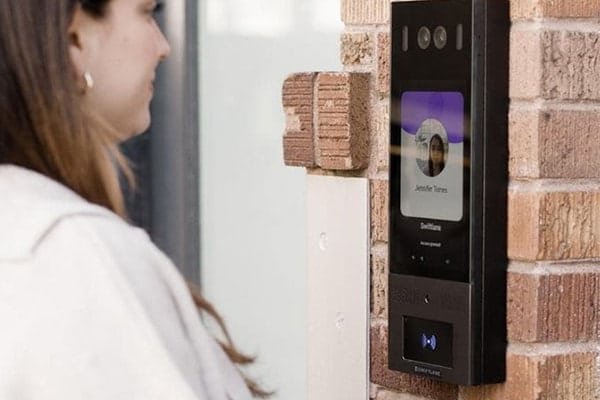
Applications of Intercom Systems
Announcement and Time Notification Systems
One common use of intercom systems is for broadcasting messages or announcing the time. In this function, it can be coordinated with basic devices to relay news or messages from management or a business to all employees or a specific group.
Additionally, it can be integrated with peripheral devices to issue alerts in emergencies such as fire alarms or medical emergencies. Here are some examples for better clarity:
- Residential buildings and apartments: Announce regulations from building management, issue fire alarms, and provide evacuation instructions during emergencies.
- Shopping malls or supermarkets: Announce missing persons or promote special offers to customers.
- Hospitals: Call patients for appointments and inform patient families of updates.
- Schools: Announce daily activities, events, or school regulations.
This system is also widely used in other places such as train stations, bus depots, harbors, airports, hotels, and restaurants.
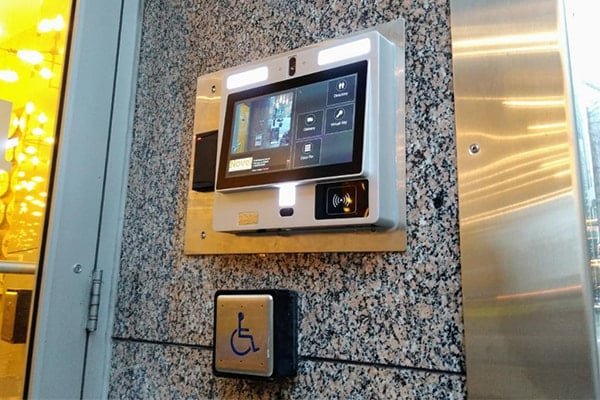
Emergency Communication Systems
Emergency communication systems enable users to make urgent calls or send distress signals to the building’s management during life-threatening situations. The signal is transmitted via wireless radio communication at the moment of the emergency, ensuring that help can be summoned quickly.
Internal Communication Systems
This type of system is commonly installed in large-scale facilities like buildings and hospitals. It allows for easy communication between departments or areas, facilitating the exchange of information or announcements.
Emergency Evacuation and Public Address Systems
Another frequently seen application of internal communication systems is in public address and emergency evacuation notifications. Using broadcast and evacuation alarm devices, building management can easily monitor unfolding events and implement timely responses. This is especially useful during incidents like criminal break-ins or fires, where rapid communication is essential to ensuring the safety of the people involved.
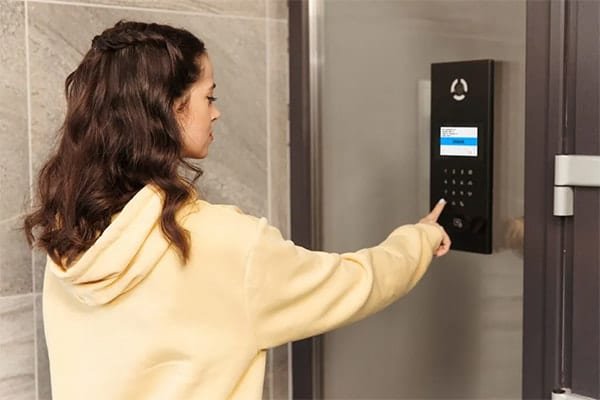
Integration with IP Video Surveillance Systems
In addition to the previously mentioned functions, intercom systems can also monitor and supervise events occurring around the installed devices. The IP video surveillance system integrates with compatible technology, allowing users to retrieve and view both audio and visual data from different areas. This capability ensures that emerging issues can be addressed promptly.
Seamless Integration with Access Control Systems
Given that buildings often see a high volume of people entering and exiting regularly, the integration of an intercom system with an access control system allows management to quickly determine if an unauthorized individual has gained access to the premises. Such integration enables faster response times and more efficient management of potential security breaches.

Criteria for Choosing an Intercom System
Specific Usage Needs
Each business will have its own unique requirements for internal communication systems based on the nature of their projects. Therefore, before installation, it is crucial to identify and list out specific needs. This not only ensures that the system meets exact demands but also helps save costs by preventing unnecessary expenditures on features that aren’t required.
Budget Considerations
There are numerous intercom systems available in the market with varying price points. Hence, you should have a clear budget in mind that you’re willing to allocate for the system installation. With a predefined budget, contractors can easily recommend solutions that are best suited to your project, ensuring you receive the most appropriate system within your financial limits.
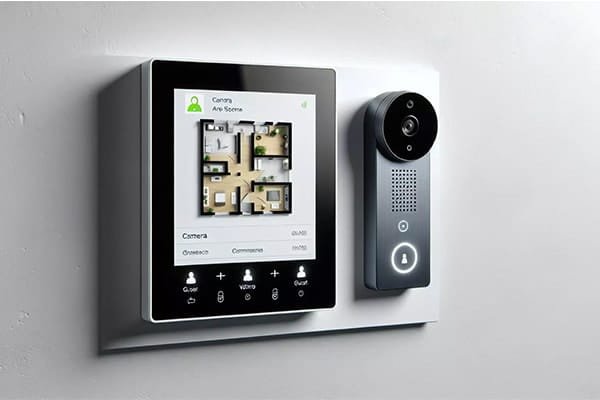
Choosing a Reputable Installation Contractor
There are many service providers offering intercom system installations today. To ensure smooth and stable operation, it’s important to select a reputable contractor for your project. A contractor with extensive experience and a clear working process will be able to recommend products that align with your specific needs, while also providing cost-effective solutions.
===> Learn more: Essential Information About Professional Sound System Today
Further Applications of Intercom Systems
Intercom systems have become increasingly indispensable in a wide variety of sectors due to their versatility. Below are several additional ways in which intercom systems are employed in different fields.
In Residential Complexes
In residential buildings and apartment complexes, intercom systems facilitate internal communication between residents and building management. Whether it’s reporting maintenance issues, requesting assistance, or broadcasting public service announcements, intercoms streamline the flow of information within the complex. They also enhance security by integrating with surveillance systems and access control, enabling management to oversee the safety and security of the building more effectively.

In Office Buildings
For corporate offices, intercom systems support internal communication between departments, improving coordination and operational efficiency. In larger office buildings, where employees are spread across multiple floors, intercoms enable quick and easy communication without the need to rely on external telephone networks or personal mobile devices. These systems can also assist in making building-wide announcements, including emergency alerts, time-sensitive notifications, or corporate updates.
In Healthcare Facilities
In hospitals and clinics, intercom systems are vital for patient management and communication. Medical staff can use the system to communicate between different departments, coordinate patient transfers, and make important announcements regarding emergencies or routine patient call-ins. The ability to seamlessly communicate across a large hospital can significantly enhance the efficiency of medical care delivery and improve patient outcomes.
In Retail Environments
Retail environments such as supermarkets and shopping malls use intercom systems to make announcements to customers and employees alike. Whether it’s providing information about ongoing promotions, coordinating staff operations, or alerting customers to important updates like lost children, the intercom system is a key tool in managing large crowds and ensuring smooth operations.
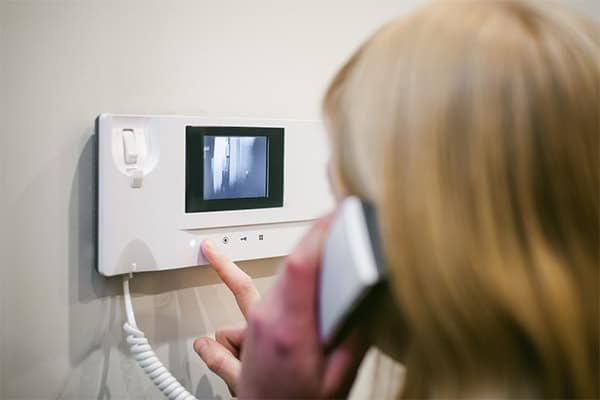
Public Transportation Hubs
In transportation hubs such as airports, bus stations, and train terminals, intercom systems are integral for managing the flow of passengers and providing real-time information. Announcements regarding flight delays, gate changes, or emergency alerts are made through these systems to keep passengers informed and safe. In these high-traffic areas, the ability to rapidly disseminate information can prevent confusion and enhance safety.
Advanced Features of Modern Intercom Systems
Modern intercom systems come equipped with a host of advanced features designed to meet the evolving needs of businesses and institutions. These features include:
- Video Intercom: Provides visual verification of individuals before communication, enhancing security, especially in areas with restricted access.
- Wireless Connectivity: Many modern intercom systems operate wirelessly, reducing the need for complex wiring during installation. Wireless intercoms are ideal for businesses that need flexible and scalable communication solutions.
- Remote Access: With the integration of mobile and cloud technology, intercom systems can now be accessed and controlled remotely, giving building managers the ability to monitor and communicate from anywhere.
- HD Audio and Video Quality: Modern intercom systems are designed to provide crystal clear audio and high-definition video, ensuring that communication is as efficient and error-free as possible.
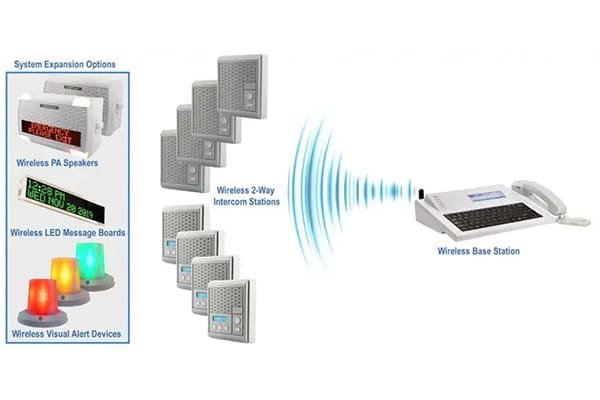
In conclusion, intercom systems have evolved into essential tools for internal communication across a wide range of industries. Their ability to facilitate seamless communication, enhance security, and provide emergency response capabilities makes them indispensable in today’s world. When choosing an intercom system, it is essential to consider your specific needs, budget constraints, and ensure you work with a reputable contractor to ensure proper installation and operation.
If you are looking to install an intercom system for your building or business, feel free to leave your information or contact NT Security directly for professional consultation.

